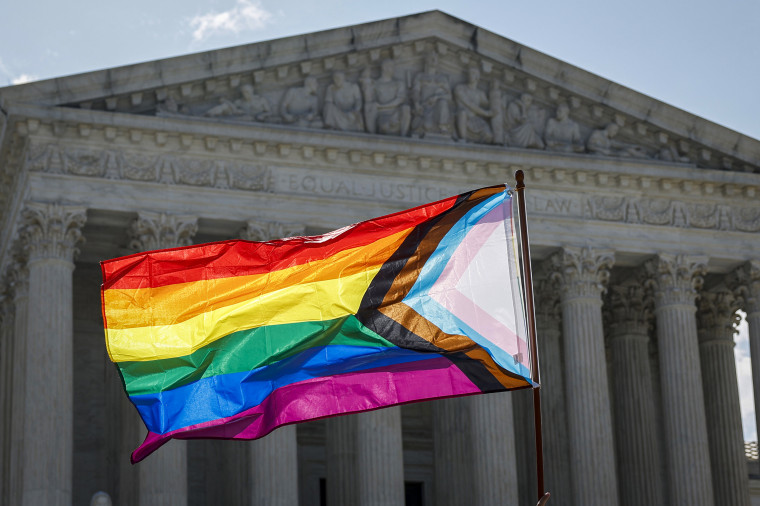WASHINGTON — The Supreme Court agreed Monday to hear a challenge to a law in Colorado that bans “conversion therapy” aimed at young people questioning their sexual orientations or gender identities.
With more than 20 states with similar bans, the court's eventual ruling is likely to have nationwide implications.
The justices took up an appeal brought by Kaley Chiles, a Christian therapist, who argued that the restriction violates her free speech rights under the Constitution’s First Amendment.
Favored by some religious conservatives, the practice is aimed at encouraging gay or lesbian minors to change their sexual orientations and transgender children to identify as the gender identities assigned to them at birth.

Chiles often has clients who are Christians, some of whom have questions about their sexual orientations and gender identities amid concerns that they are unable to live their lives in accordance with their faith, according to court papers. They seek counseling to suppress unwanted sexual attractions or to resolve conflicts about their gender identities.
"The government has no business censoring private conversations between clients and counselors, nor should a counselor be used as a tool to impose the government’s biased views on her clients," Kristen Waggoner, president of Alliance Defending Freedom, a conservative Christian advocacy group representing Chiles, said in a statement.
Chiles' lawyers cite in part the Supreme Court’s 2018 ruling that struck down on free speech grounds a California law that required anti-abortion pregnancy clinics to notify clients about abortion access.
The lawyers argue that the bans have “devastating real world consequences,” including in rare cases of “detransitioners” — the small proportion of transgender people who change course and wish to identity as the genders they were assigned at birth.
Limiting counseling options communicates to “countless minors they have no choice but to medically transition,” the lawyers said.
Colorado officials wrote in their brief that the state measure regulates conduct, not speech.
"States have long regulated medical practices to protect patients from harmful professional conduct," Colorado Attorney General Phil Weiser, a Democrat, said in a statement. "Colorado’s law protecting young people from unscientific and cruel gay conversion therapy practices is humane, smart, and appropriate.”
A federal judge and the Denver-based 10th U.S. Circuit Court of Appeals both ruled in favor of the state.
The Supreme Court has on several occasions refused to take up challenges to similar conversion therapy bans, most recently in December 2023, when it left a law in Washington state in place. Three conservative justices said at that time they would have taken up the case.
The new case will be argued and decided in the court's next term, which starts in October and ends in June 2026.
